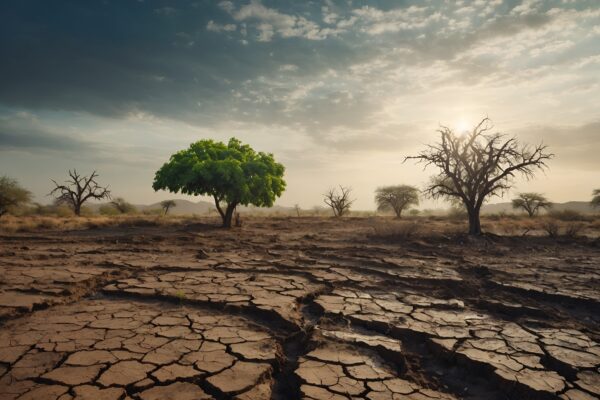
Driving sustainability in emerging economies
Sustainability in emerging economies is both a local development priority and a global climate necessity.
How Do Emerging Markets Shape Global Net-Zero Pathways?
Sustainability in emerging economies is a crucial topic because these regions are where much of the world’s agricultural expansion, resource extraction, and industrial growth are occurring, resulting in direct impacts on global warming trajectories through associated emissions.
However, the importance extends beyond their own borders. Developed economies increasingly rely on global supply chains for food, energy, and consumer goods, resulting in a large share of their upstream emissions actually occurring offshore in emerging markets.
As a result, progress on sustainability in these producer regions is essential for developed countries to meet their own climate commitments; without reductions in supply-chain emissions, national net-zero targets in wealthier economies cannot be achieved.
Sustainability in emerging economies is both a local development priority and a global climate necessity.
How Are Global Development Institutions Supporting Sustainable Agriculture?
International development institutions such as the World Bank Group and the International Finance Corporation (IFC) play a central role in improving sustainable farming practices. They have developed outgrower communities across a range of agricultural sectors, which link smallholder farmers to larger processing companies or cooperatives, creating opportunities for income generation and rural development.
However, without support, these systems can also lead to land expansion, environmental degradation, and unstable livelihoods. To address these challenges, World Bank and IFC programs typically combine financing, technical assistance, land governance support, and market incentives to help smallholders increase productivity on existing farmland while reducing pressure to convert forests or other high-value ecosystems.
A core approach of these programs is capacity building. Smallholders receive training in soil management, efficient input use, improved seed selection, water conservation, and climate-smart agricultural methods. Stronger agronomic practices raise yields per hectare, which reduces the economic incentive to expand production into forested areas. Programs also focus on value chain integration, helping outgrowers access stable buyers, processing facilities, and fair pricing structures. These market linkages are essential because higher productivity alone does not translate into improved livelihoods unless farmers can reliably sell their crops at favourable terms.
Another key area of support involves land and legal governance. Many smallholders operate on informally held land, exposing them to conflict and discouraging long-term investment in sustainable land management. World Bank-supported land registration and tenure-strengthening initiatives help secure property rights and reduce land disputes. When farmers have recognised land rights, they are more likely to invest in tree crops, soil fertility, and conservation practices that provide benefits over longer time horizons.
How Can We Reduce Deforestation While Meeting Growing Global Demand?
For climate and environmental outcomes, these programs emphasise avoiding deforestation and restoring degraded areas. Financing mechanisms are often structured to prioritise investment in already-cleared land and to align with national land-use planning frameworks. In addition, new financial models such as blended finance and sustainability-linked loans are increasingly used to encourage companies that source from outgrowers to adopt and enforce environmentally responsible practices throughout their supply chains.
A clear example of how these principles operate in practice can be seen in the palm oil sector, where sustainability concerns, particularly deforestation, peatland drainage, and carbon emissions, have been significant.
The Roundtable on Sustainable Palm Oil (RSPO) provides a widely recognised certification standard for more sustainable production. RSPO certification has expanded to cover more than 5.2 million hectares of palm oil cultivation globally. Within these certified areas, approximately 466,000 hectares are identified as conserved or protected from development, demonstrating measurable forest and biodiversity protection outcomes (RSPO Impact Report 2024).
What Does Sustainable Palm Oil Look Like in Practice?
Research comparing certified and non-certified production shows that RSPO-certified palm oil can reduce greenhouse gas emissions by approximately 35% per kilogram of oil produced (Schmidt and De Rosa, 2020). This reduction stems from improved land-use practices, better fertiliser and nutrient management, biogas capture at processing mills, and the avoidance of peatland conversion, which is one of the largest single sources of emissions in tropical agriculture.
These reductions are significant not only for producer countries but also for developed economies that rely on palm oil and other commodities through global supply chains. Many emissions occur where raw materials are produced rather than where products are consumed, so sustainability improvements in producing countries are essential for achieving global climate targets.
Social benefits for smallholders in certified or sustainability-supported schemes include improved yields and higher net farm incomes, strengthened bargaining power with mills, and increased household food security. These gains are most consistent when certification is paired with training, access to credit for replanting, and guaranteed market access. Without these complementary supports, certification alone may be too costly or complex for smallholders to adopt.
How Sustainable Farming Unlocks Stronger Global Supply Chains
Overall, the combined experience of World Bank/IFC programs and sustainability standards such as RSPO demonstrates that sustainable outgrower agriculture is achievable when financial, institutional, and market supports are aligned.
Strengthening smallholder capacity, securing land rights, reducing deforestation risk, and integrating farmers into stable value chains contribute not only to local rural development but also to global climate mitigation goals.
Navigating sustainability in global supply chains requires clarity, expertise, and the right partnerships. Inspired supports organisations in measuring, managing, and reducing their environmental footprint, both at home and across international producer regions. From carbon accounting and ESG reporting to supply-chain due diligence, nature-based solutions, and climate-risk analysis, we help turn ambition into credible, measurable progress.
If you have any questions or would like to discuss how our experts could best support you, please contact our ESG consultants today.










